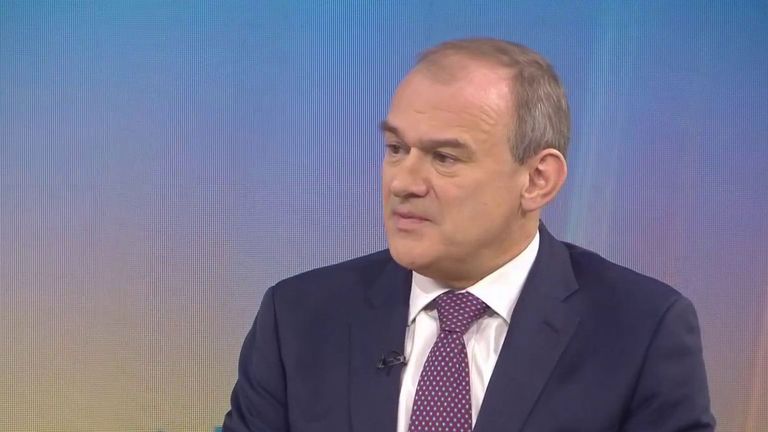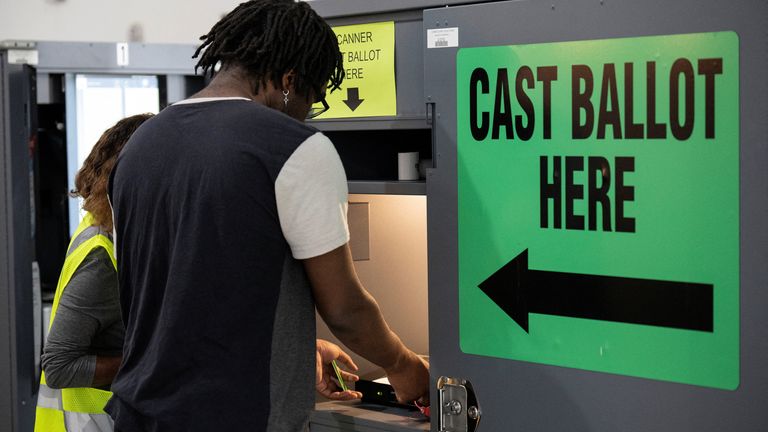The Conservatives have “opened themselves up” to allegations that changes to voter ID rules were designed to benefit them, the head of the elections watchdog has said.
John Pullinger, chair of the Electoral Commission, told the Financial Times a requirement for voters to carry identification “is clearly proving more of a barrier to some people than others”.
Politics latest: Red Sea crisis ‘may get more sticky’
The rules were introduced last year, requiring people to provide one of 22 forms of ID in order to vote.
This resulted in 14,000 individuals being turned away from polling booths at the local elections in May as they did not have the correct documentation, according to the Electoral Commission.
Mr Pullinger said the proportion was “significantly higher” among groups including the disabled and unemployed.
The rules were introduced to prevent voter fraud, though critics said there was little evidence of this occurring.
Mr Pullinger said while he could accept the government’s point on principle, if a consequence of heightening election security is “to disenfranchise particular people” then “we should do better”.
Is voter fraud a real problem?
Speaking to Sky News, Mr Pullinger said confidence in the integrity of our electoral processes “depends on voter confidence in the fairness of the system”.
“When a government makes changes to those processes, there can be questions around how they will be perceived by voters and other parts of the system,” he said.
“In the case of voter ID, we are aware of parties and campaigners that have raised concerns about the introduction of the new requirement.”
The government has consistently denied accusations the reforms were an attempt to help the Tories, saying they are necessary to prevent voter fraud and ensure confidence in the UK’s elections.
But critics pointed out that there is little evidence of voter fraud.
Just one incident initiated court proceedings across all UK elections in the year before the ID rules were introduced, according to the Electoral Commission.
Read More:
‘It’s just disenfranchisement on a grand scale’
Watchdog to examine new voter ID requirement
‘We upset a system that worked perfectly well’
Concerns have been raised not just by the opposition, but senior Conservative MPs.
Last May, former minister Jacob Rees-Mogg claimed the rules were an attempt by the Tories to “gerrymander” the electoral system and reduce voting among groups who traditionally align themselves to other parties.
Speaking at the National Conservatism conference, Mr Rees-Mogg said: “Parties that try and gerrymander end up finding their clever scheme comes back to bite them, as dare I say we found by insisting on voter ID for elections.
“We found the people who didn’t have ID were elderly, and they by and large voted Conservative.
“So we made it hard for our own voters, and we upset a system that worked perfectly well.”
He had supported the proposals when he was in government under Liz Truss and Boris Johnson.
The Electoral Commission said it is concerned the issues which emerged in the local elections last year will be “exacerbated” at the general election, expected in the second half of this year.
It has put forward a number of recommendations to improve the system, including expanding the forms of acceptable ID and allowing someone with ID to vouch for another person who does not have it.

